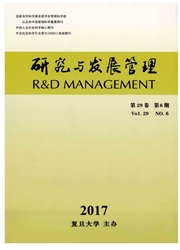

 中文摘要:
中文摘要:
利用2001--2007年中国工业行业的面板数据,研究了自主研发和国际经济活动中的技术引进对我国工业行业技术创新的影响,以及这一影响在高技术与一般技术行业中的差别.研究发现,总体上自主研发与技术引进对我国的技术创新都具有正向影响,但自主研发对创新的促进作用强于技术引进.并且,我国工业行业存在着技术引进的门槛效应,当消化吸收投入增加时,出口与FDI的溢出效应也随之增强.对高技术和一般技术行业的分组估计表明,高技术行业自主研发的人力投入对创新的促进作用弱于一般技术行业,但资本投入的作用却强于一般技术行业.同时,与高技术行业相比,一般技术行业中出口的创新促进作用更加明显.
 英文摘要:
英文摘要:
It explores the impacts of indigenous R&D and technology import on domestic technology innovation, and the differences between such impacts in high-tech industries and general tech industries by using China's industry-panel level data from 2001 to 2007. It shows that both ways stimulate domestic technology innovation while the former plays a more important role. In addition, there exists a threshold effect of technology import in the sample industries. The spill-over effect of export and FDI strengthens as the expenditure on technology absorption increases. A comparative research reveals that the positive impact of labor input is stronger in general industries, while that of capital input is stronger in high-tech industries. Also, the stimulating effect of export is more significant in general industries.
 同期刊论文项目
同期刊论文项目
 同项目期刊论文
同项目期刊论文
 期刊信息
期刊信息
